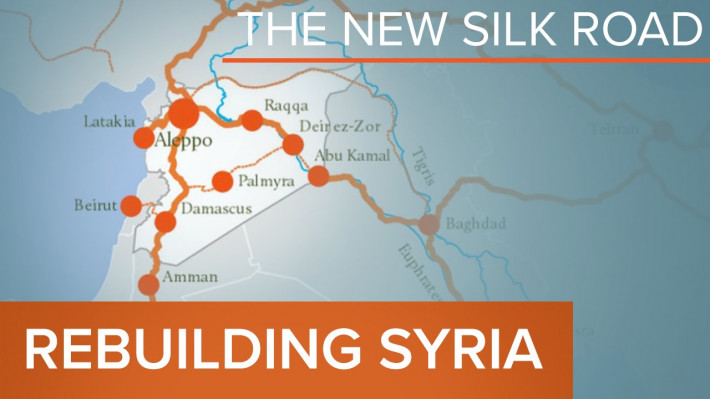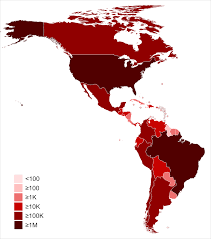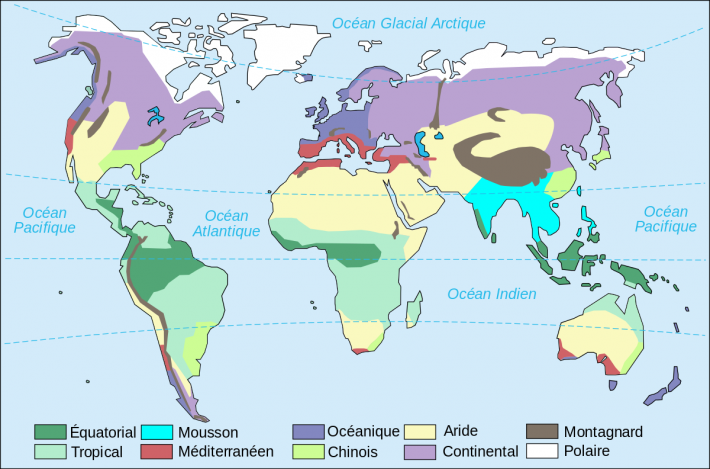March 29 (EIRNS)–The Syrian official English-language daily Syria Times published a short review of what it considers the main points of former Virginia state Senator Richard Black’s speech at the Schiller Institute international conference on March 21. The daily then links to the video of the speech. I have asked them to link to the Schiller Institute conference page. The coverage can be found here.
Helga Zepp-LaRouche was one of the guests on CGTN’s “Dialogue” program’s coverage of the situation in Xinjiang. She focused on the tremendous development of China that he she had seen over the years, and the background to Xinjiang destabilization in Brzezinski’s creating terrorism in the U.S. war against the Soviet Union in Afghanistan. Also appearing on the show was Sultan Hali, speaker at the recent Schiller Institute conference.
Roman Catholic Cardinal Mario Zenari, the representative of the Vatican in Syria since the beginning of the Syria war, issued an appeal for international support to reconstruct the country, as time is running out. “Peace, I repeat, will not come to Syria without reconstruction and without economic recovery,” Zenari said March 23. “But how long will Syrians have to wait? Time is running out. Many of the people have lost hope. Urgent and radical solutions are needed.”
Zenari said that the “present political deadlock” between the parties in the Syrian conflict must be overcome through “mutual and reciprocal [steps], step by step from the Syrian government and the opposition and key international players.” He further stated, “While the peace process is in this moment in a complete deadlock, poverty, on the contrary, is moving forward fast.”
Zenari was speaking via Zoom from Damascus at a virtual event organized by the Catholic charity Caritas Internationalis.
Zenari said about 90% of the population of Syria is living below the poverty line, which according to UN figures is “the highest percentage in the world.” He cited the Lebanese financial crisis, the effects of the COVID-19 pandemic, internal corruption, and foreign sanctions have all contributed to the deepening poverty in Syria caused by 10 years of war.
“The Syrian pound has lost much of its value against the U.S. dollar. The price of food has significantly increased. At the bakeries, people queue to try to get limited subsidized bread that is available. The same scene for petrol all around the country. … The people call this difficult time an ‘economic war,’ worse than that of previous years,” he said.
The World Bank estimates that the country has suffered at least $197 billion worth of infrastructure damage during the war.
Pope Francis marked the 10th anniversary of the start of the Syrian war by praying for an end to the war and a renewed commitment from the international community for rebuilding efforts, at the end of his Sunday Angelus on March 14. Zenari first arrived in Syria as apostolic nuncio in 2008, and in 2016 Pope Francis made him a cardinal as a sign of the Pope’s closeness to Syria, Cardinal Pietro Parolin told Catholic News Agency (CNA) at the time.
Here we review a proposal for the reconstruction of Syria called Project Phoenix, focusing on how Syria, which enjoys an ideal position at the crossroads of three continents, can benefit from connecting to the New Silk Road and the emerging World Land-Bridge. This video was produced for the June 25-26, 2016 Schiller Institute conference in Berlin, Germany, “Common Future for Mankind, and a Renaissance of the Classical Cultures”
Blinken Attacks China; Wang Yi Says None of the ASEAN Nations Agree—
Aug. 7 (EIRNS)–The final conference of the week of ASEAN meetings this week, the East Asia Summit Ministerial, involved a larger group in the Asia-Pacific region, including the United States, Japan and Australia. U.S. Secretary of State Blinken, like the skunk who came to the picnic, decided to do something of a repeat of Anchorage, going after China’s alleged human rights abuses in Tibet, Xinjiang and Hong Kong. While there was no transcript to the meeting, it seems that Japan and Australia may also have chipped in on this. Wang Yi asked for the floor a second time to respond to the attacks.
Wang Yi said that as expected, the United States and other countries will use the multilateral platform to attack and smear China’s internal affairs. “These clichés are not worth refuting, and none of the ASEAN countries agree with you, but out of the principle of reciprocity, China certainly has the right to refute them. But for such abominable behavior, we will resolutely make refutation each and every time it comes up,” Wang asserted.
“Brazil Now Represents a Threat to Global Public Health”: Brazilian Epidemiologist
March 25 (EIRNS) — Dr. Pedro Hallal, an epidemiologist and Dean at the Federal University of Pelotas in southern Brazil, stated that “Brazil now represents a threat to global public health” that must be urgently addressed by international action. Hallal is the coordinator of Epicovid-19, the largest epidemiological study into the coronavirus in Brazil. Hallal stated that the pandemic is out of control in Brazil, which is now a breeding ground for dangerous new variants. “The virus is circulating so widely in Brazil that it is possible, and I would say likely, that new variants will appear in the near future. We need to stop that urgently,” he said.
Hallal called for an international task force to address the crisis, since the policies of the Brazilian government of Jair Bolsonaro have brought the country to the brink of collapse. If not, “global efforts to control COVID-19 will be jeopardized,” he said.
An open letter from hundreds of leading financial figures in Brazil, including former ministers and five former presidents of Brazil’s Central Bank, also slammed Bolsonaro’s COVID policy and demanded urgent change. Without ever mentioning Bolsonaro by name, the letter is clear, attacking Brazil’s “top political leadership” which displays “a disdain for science, looks to remedies without evidence of their effectiveness, encourages crowds, and flirts with the anti-vax movement.” They demand a nationally coordinated policy of social distancing, including a national lockdown if necessary.
Bolsonaro is feeling the heat, and has reluctantly agreed to meet with Brazil’s governors – who universally oppose his do-nothing policy and have tried to impose state-by-state measures – and has even promised to start a serious vaccination campaign (so far, less than 7% of Brazilians have had one dose of a vaccine). In over half of the country’s 26 states, the rate of occupancy in ICUs tops 90%. Last Tuesday, daily deaths in the country topped 3,000 for the first time, with 3,251 deaths recorded. Brazil now accounts for one out of every four deaths worldwide from COVID. The biomedical research institution Fiocruz, a week ago reported that Brazil’s public health systems are “living through the worst collapse in history.”
“The situation is very, very concerning,” said Tedros Adhanom Ghebreyesus, director-general of the World Health Organization. “Brazil has to take it seriously.” Dr. Hallal stated: “If we do not have enough vaccines in the next 30 to 45 days, the situation will be terrible — not only for Brazil, but for the rest of the world.”
UN Security Council Unanimously Pushes for Afghan Political Solution—
Aug. 4 (EIRNS)—In New York, the UN Security Council unanimously issued a press statement condemning deliberate attacks on civilians in Afghanistan and all instances of terrorism “in the strongest terms” on Aug. 3, while declaring its opposition to restoration of rule by the Taliban, reported The Associated Press. The council called on the Afghan government and the Taliban “to engage meaningfully in an inclusive, Afghan-led and Afghan-owned peace process in order to make urgent progress towards a political settlement and a ceasefire.” The council statement also expressed “deep concern” at the high levels of violence and reported serious human rights abuses in Afghanistan following the Taliban’s offensive. It urged an immediate reduction in violence.
It is noteworthy that the U.S., China and Russia (as well as the U.K. and France) all agreed with this perspective on Afghanistan.
Secretary of State Antony Blinken also spoke with Afghanistan President Ashraf Ghani by phone yesterday to press for a political settlement and lecture Ghani on democracy and human rights.
Afghanistan Foreign Minister Mohammad Hanif Atmar told TOLOnews in an Aug. 2 interview that the Taliban enjoys the support of foreign terrorists in Afghanistan. “The Taliban relies on the support of foreign terrorists and mainly aims to attack cities,” he said. “Afghanistan’s international allies hold the same opinion.”
“Two important encounters will take place in Doha (Qatar) in the coming days: One with our regional allies and the other with international allies in the format of the Extended Troika,” comprised of Russia, the United States, China and Pakistan, Atmar continued. “We are turning to the international community with a request to exert pressure on the Taliban so that this movement observes human rights. Up to now, the Taliban has been brutally assaulting civilians.”
On the ground, heavy fighting reportedly continues in both Herat in western Afghanistan and in the southern province of Helmand. Several airstrikes were reportedly launched by Afghan and U.S. air forces since Tuesday night (Aug. 3), according to security sources. The commander of the Army’s 215 Maiwand Corps, Gen. Sami Sadat, called on residents in Lashkar Gah, the provincial capital of Helmand, to evacuate their homes as the army was preparing for a large-scale operation to clear the city of the Taliban. However, as of the latest reports, the army had not made much progress beyond controlling government buildings.
Aug. 3, 2021 (EIRNS)—One of the criticisms leveled against the climate models used to terrify the world with the unfathomable horror of a change of 1.5 degrees by the turn of the century, relates to how modelers deal with uncertainties.
The entire Earth is a very complex system to model, and our understanding of many of its processes—wind patterns, rainfall, ocean circulation—is incomplete. This means that models cannot claim to be based purely on fundamental physics and well-known laws of nature, the way a simple physics demonstration used in a classroom would.
Instead, each of the uncertain values that is incorporated into the final model has some “wiggle room” in the specific value given to it.
If there are only a few uncertainties, the model as a whole will have only a few adjustment points, and there may be a very small range of setting the uncertain parameters that results in the model accurately producing past data, against which it can be verified.
But if there are many “knobs” on the machine, so to speak, there can be many ways of adjusting them such that the model matches the past relatively well (given the extremely incomplete data, no one expects perfection), while offering wildly different predictions for the future.
Climate models have many free parameters, many knobs to adjust, such that their matching past data says little about their ability accurately to predict the future. In this sense, you can get the underlying climate data to confess anything you’d like about the future, including out- of-control warming.
The Executive Director of the CO₂ Coalition recently wrote about the origin of climate models: “The father of these models was Cold War military theorist John von Neumann, who wanted to see if we could cause drought in the Soviet Union. He failed, thank goodness. Von Neumann joked, ‘with four parameters I can draw an elephant, and with five I can make him wiggle his trunk.’”
Professor Will Happer uncovered a 2010 paper by Jürgen Mayer et al. (DOI: 10.1119/1.3254017) that does just that. They use a Fourier coordinate expansion with four complex parameters to successfully parameterize a shape resembling an elephant. And adding a fifth causes the trunk to move around as its path is traced.
(Unlike the cases in climate models, in this case there was no data against which to validate the parameters, so the authors were completely free to set them as they pleased.)
What can a climate modeler achieve with hundreds or thousands of free parameters?
The U.K. Defence Command Paper, “Defence in a Competitive Age,” released by British Defense Secretary Ben Wallace yesterday as a follow-up to the defense, security, and foreign policy review released last week, focuses on the “21st century threats” that the U.K. supposedly faces in a world allegedly characterized by permanent confrontation. “Those of us in government charged to protect and defend have a duty to enter new domains, as well as continuing investment in the traditional ones, but always adapting to the threat,” Wallace wrote in the foreword. “History shows us, time and time again, that failing to do so risks irrelevance and defeat. As the threat changes we must change with it, remaining clear-eyed about what capabilities we retire, why we are doing so, and how they will be replaced.” Therefore, the process for developing the new policy began with “assessing the threats we are encountering and anticipating, before considering how we should address them, and only then with which equipment, and what resources are required to field them.”
“We must actively champion those shared values of liberty, justice and tolerance that have given billions of souls the world over the chance of a better life, and do so through our actions, not just our words. U.K. diplomacy is underwritten by the credibility of the U.K. armed forces, and they will be more integrated, active and agile, capable of both deterring threats and defeating enemies,” Wallace declared. This is all to be backed up by £188 billion in defense spending over the coming four years–an increase of £24 billion or 14%–which, Wallace claimed, “is an investment in that vision of security and prosperity in 2030.”
But the real axiomatic basis for what’s behind the new policy is this: “The notion of war and peace as binary states has given way to a continuum of conflict, requiring us to prepare our forces for more persistent global engagement and constant campaigning, moving seamlessly from operating to war fighting.” The armed forces “{will no longer be held as a force of last resort} [emphasis added], but become more present and active around the world, operating below the threshold of open conflict to uphold our values and secure our interests, partner our friends and enable our allies, whether they are in the Euro-Atlantic, the Indo-Pacific, or beyond.”
In other words, the United Kingdom will be in a permanent state of confrontation, if not always a shooting war, against Russia, China, and any other designated enemies who refuse to submit themselves to the “rules-based international order” dictated by the Anglo-American empire.
NASA’s Goddard Institute Pours Cold Water on Climate Change Sales Pitch—
Aug. 1 (EIRNS)–Under the headline “U.N. climate panel confronts implausibly hot forecasts of future warming,” a July 27 article in Science magazine covers the bombshell that has just hit the IPCC’s climate modelers: “Many of the world’s leading models are now projecting warming rates that most scientists, including the model makers themselves, believe are implausibly fast.”
Now, the article says, “scientists have scrambled to understand what went wrong.” Some of them are wondering how they can “turn their models into useful guidance for policy makers” – which was their supposed raison d’être in the first place! Worst of all for them, their feet are being held to the fire by Gavin Schmidt, Director of NASA’s Goddard Institute for Space Studies, who said: “It’s become clear over the last year or so that we can’t avoid this [fixing the models].”
The IPCC is in trouble, because by the time the modelers’ bias was exposed, the supercomputing runs were already done and the IPCC report, based on these implausible fast warming rates, was nearing completion. The IPCC is now perilously close to being totally discredited, even by its own disciples. Meanwhile, other scientists, who actually measure phenomena rather than fiddle with models, are using recent observational data [gasp] “to rein them in.”
Here is a warning by one of the IPCC’s own climate projection leaders, Claudia Tebaldi, a climate scientist at Pacific Northwest National Laboratory: “For now, policy makers and other researchers need to avoid putting too much stock in the unconstrained extreme warming the latest models predict.”
Already climate papers are appearing using CMIP’s [Coupled Model Intercomparison Project] unconstrained worst-case scenarios for 2100. “But,” says the Director of NASA’s Goddard Institute for Space Studies, “that practice needs to change. You end up with numbers for even the near-term, that are insanely scary—and wrong.”
Aug. 1 (EIRNS)–The UN warned on Saturday of “catastrophic” food shortages set to sweep world’s hunger hotspots over the next three months. Among the 23 hotspots are Ethiopia’s embattled Tigray region, southern Madagascar, Yemen, South Sudan and northern Nigeria. These worst-case locations have now progressed to starvation and death situations. “Hunger Hotspots,” issued jointly by the UN’s Food and Agriculture Organization and their World Food Programme identified that in the August-November period “acute food insecurity is likely to further deteriorate.” Ethiopia is facing 401,000 people dying of starvation without an immediate intervention of humanitarian aid.


















